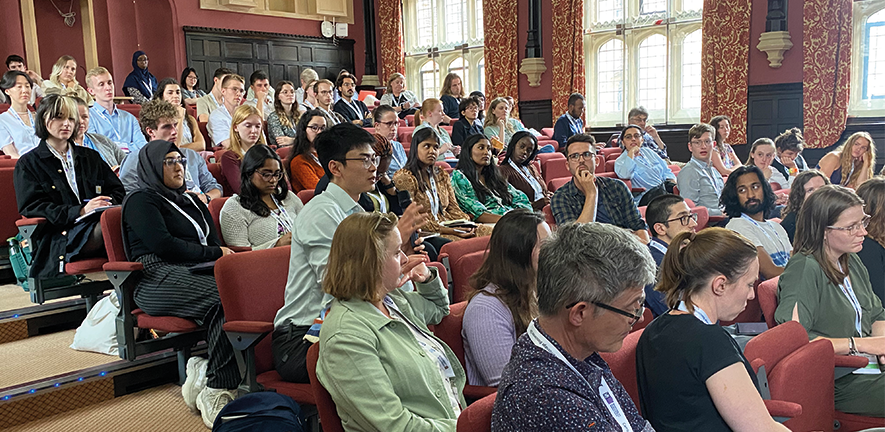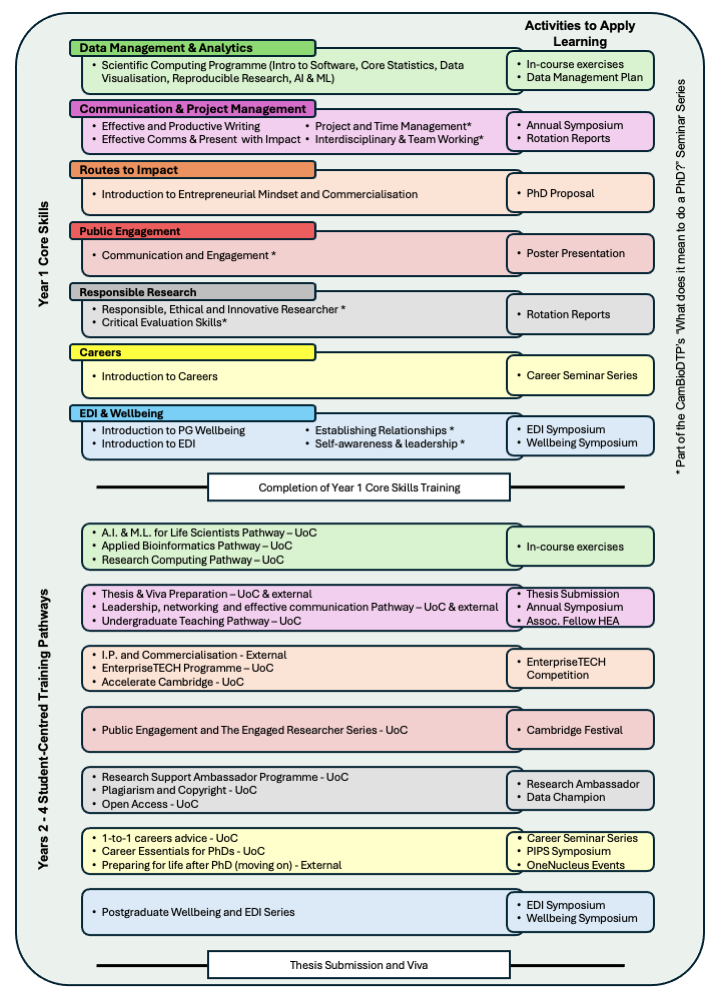Our DTP training programme is designed to boost skill development through immersive experiences and personalised self-assessment tools.
Participants engage in real-world scenarios with structured activities, workshops, and projects to enhance proficiency across various domains. This ensures they gain both theoretical knowledge and practical skills, essential for success. Our programme also features regular self-assessment exercises, empowering participants to track progress, identify areas for improvement, and shape their individual development path.
Cohort Building is an essential component of our programme, linked to our vision to create a supportive environment where students can flourish and build interdisciplinary networks.
Training programme structure
Year 1: Core skills
In Year 1 each student undergoes an initial training needs analysis, using the Vitae Researcher Development Framework. Together with the Training and Inclusive Support Manager, they create a personalised training plan. This empowers students to actively steer their professional growth.
Activities and seminars include:
- Data Management and Analytics: Scientific Computing Programme (Intro to Software, Core Statistics, Data visualisation, Reproducible Research, AI and Machine Learning)
- Communication and Project Management: Effective and Productive Writing; Effective Communications and Presenting with Impact; Project and Time Management; Interdisciplinary and Team Working
- Routes to Impact: Introduction to Entrepreneurial Mindset and Commercialisation
- Public Engagement: Communication and Engagement
- Responsible Research: Responsible, Ethical and Innovative Researcher; Critical Evaluation Skills
- Careers: introduction to careers
- Equality, Diversity and Inclusion and Wellbeing: Introduction to Postgraduate Wellbeing; Introduction to Equality, Diversity and Inclusion; Establishing Relationships; Self-awareness and Leadership
Years 2 – 4: Student-centred training pathways
In Years 2 to 4, students choose from various themed training pathways, some offered in collaboration with non-Higher Education Institution partners. They decide when and how to engage with these opportunities in consultation with the Training and Inclusive Support Manager and their supervisor during their annual training needs analysis.
Pathways and courses include:
- AI and Machine Learning for Life Scientists
- Applied Bioinformatics
- Research Computing
- Thesis and Viva Preparation
- Leaderships, Networking and Effective Communication
- Undergraduate Teaching
- IP and Commercialisation
- Enterprise TECH Programme
- Accelerate Cambridge
- Public Engagement and Engaged Researcher
- Research Support Ambassador Programme
- Plagiarism and Copyright
- Open Access
- 1-to-1 Careers Advice
- Careers Essentials for PhDs
- Preparing for life after PhD
- Postgraduate Wellbeing and Equality, Diversity and Inclusion



